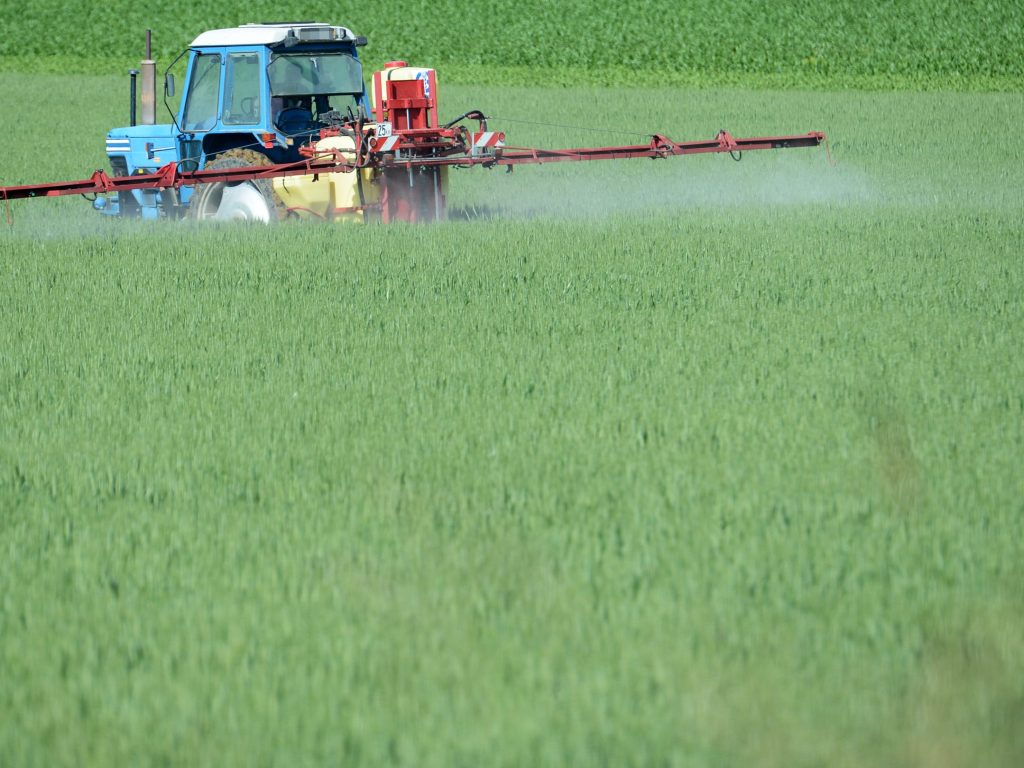
The “Pesticides Atlas” was published on Wednesday.
© APA / HELMUT FOHRINGER (avatar)
“Atlas of Pesticides – Facts and Figures on Toxins in Agriculture 2022” was published on Wednesday. It is over 50 pages long and deals with the topic of pesticides.
The atlas is supplemented by a podcast. Among other things, he talks about exports of pesticides banned in the EU to South America and Africa, the steadily increasing amount of money used and the potential return of glyphosate in the EU.
Who invented the “Atlas of Pesticides”
The “Pesticide Atlas” was jointly created by the NGO Global 2000, the Heinrich Böll Foundation, the Confederation for the Environment and Conservation of Nature Germany (BUND) and the Pestizid Action Network (PAN Germany), and contains a number of figures, data, facts, consequences and potential unwanted side effects. 80 percent — according to the “Pesticide Atlas 2022,” the amount of pesticides used worldwide has increased by this amount since 1990 — and in some regions such as South America by more than 140 percent. Exports of thiamethoxam, imidacloprid and Clothianidin “highly dangerous to bees” to third countries such as Kenya and Brazil, which are banned in the European Union, weighed 3,800 tons, according to Bayer and Syngenta in the fourth quarter of 2020. Or 1,000 kilometers is cited as the distance for which the pesticides can be detected Lesions applied elsewhere at air measurement points.
In the European Union, pesticide use is about 480,000 tons, nearly two-thirds of the amount used in all of South America, although only a quarter of the area is cultivated in the European Union. And after the Atlas got a copy from Austria again, as in the previous year, readers learned that 13,395 tons of pesticides were used here in 2020. According to Global 2000 Associate Editor, this amount should fall as quickly as possible. Dagmar Gordon, who heads the Pesticide Reduction Program, claims that “the extinction of species, which also affects our country, is now tragic and can only be stopped if the use of agricultural toxins is significantly reduced. This applies to Austria as well as all over the world.” in the environment organization.
“Atlas of Pesticides” with arguments
The “Pesticide Atlas” presents a large number of arguments for reducing pesticide use. Their use has a fatal effect on biodiversity: only three percent of the biodiversity of flowers can be found in traditionally cultivated fields compared to those areas that have not been treated with pesticides. In organically farmed fields, diversity is much higher at 53 percent. Now that the global amount of pesticides used continues to increase, this is leading to an increase in pesticide poisoning around the world – especially in the Global South, where workers often lack adequate protection. Conservative calculations suggest that there are about 255 million poisoning incidents in Asia each year, just over 100 million in Africa and about 1.6 million “only” in Europe.
Global Environmental Chemist of the Year 2000 contributed to the “Pesticide Atlas”
One of the authors of “Pestzidatlas” is global environmental chemist Helmut Burtscher-Schaden in 2000 and in his “Copy & Paste” chapter, he reports on how Bayer and other companies are fighting for re-approval of the controversial pesticide glyphosate in the European Union. The “controversy” is headed for an end by the end of the year, because until then the European Union will have to decide the further fate of the herbicide, which is classified as “possibly carcinogenic” by the International Agency for Research on Cancer (IARC), part of the World Health Organization (WHO). ). Global 2000 warned in conclusion that “if glyphosate is not banned, it will continue to be used as part of ÖPUL from 2023”. OPÜL is the Austrian program for eco-friendly agriculture.

“Food practitioner. Bacon guru. Infuriatingly humble zombie enthusiast. Total student.”








More Stories
Kyiv: Russian Kursk offensive halted
US Presidential Election: Former US Government Officials Warn Against Donald Trump's Election
Netherlands wants to leave asylum system